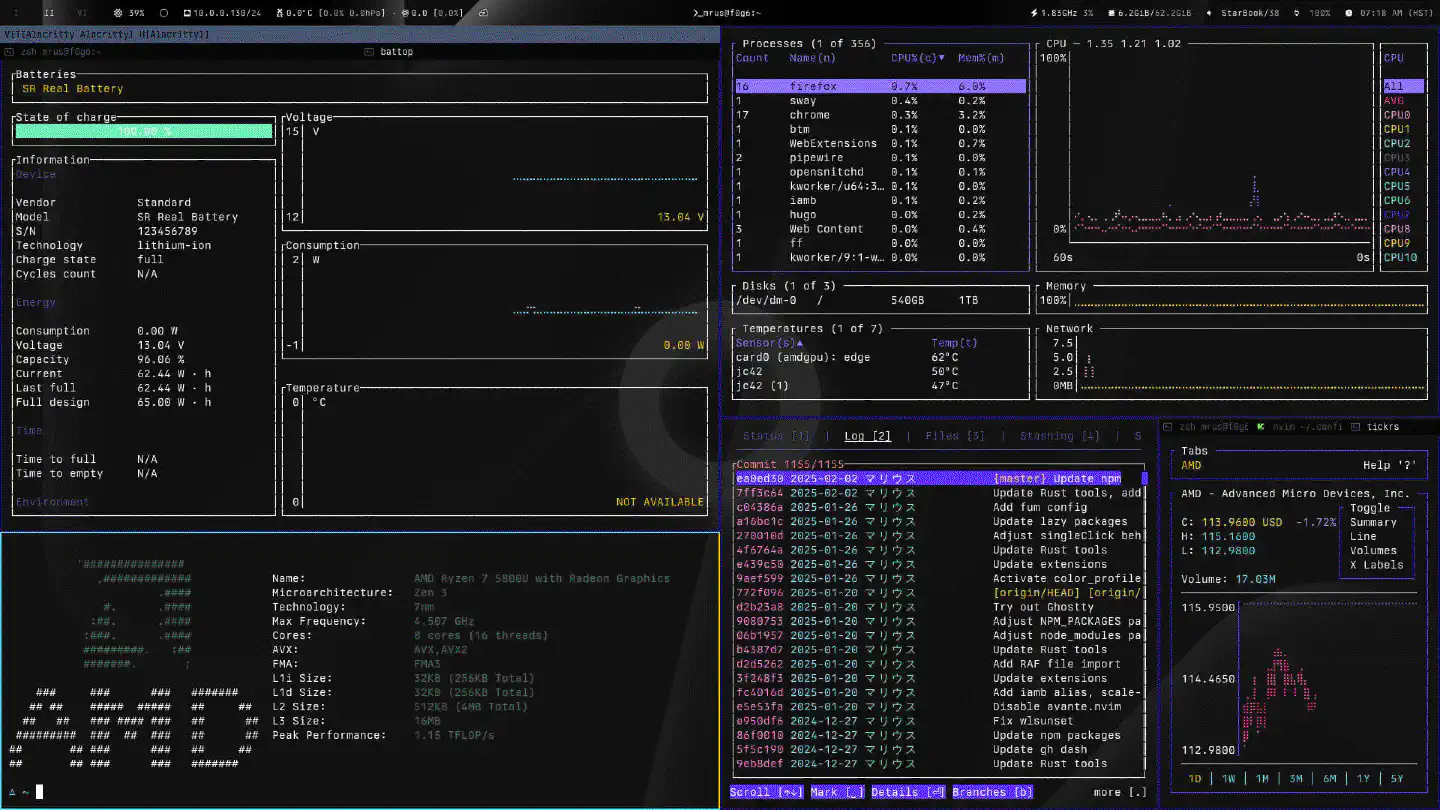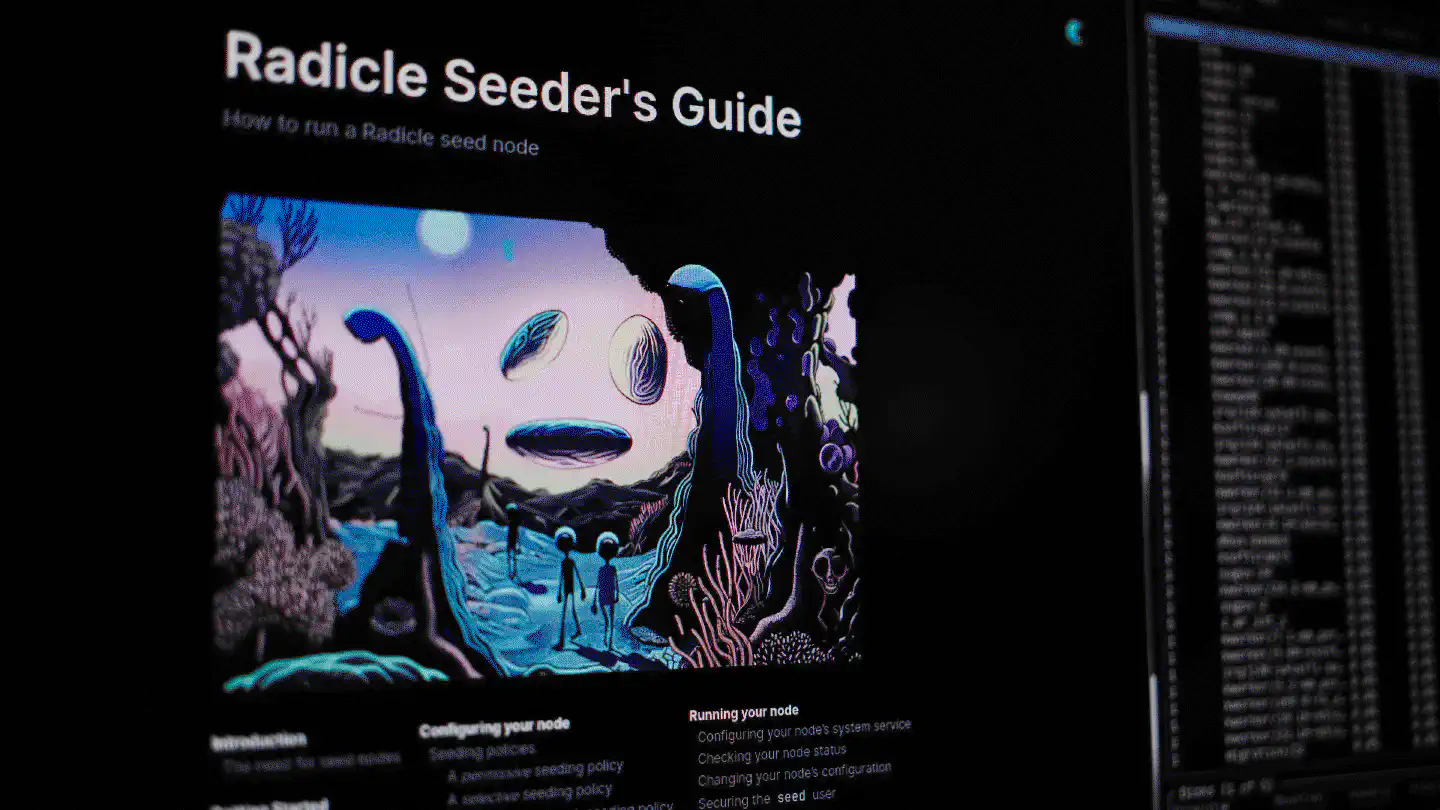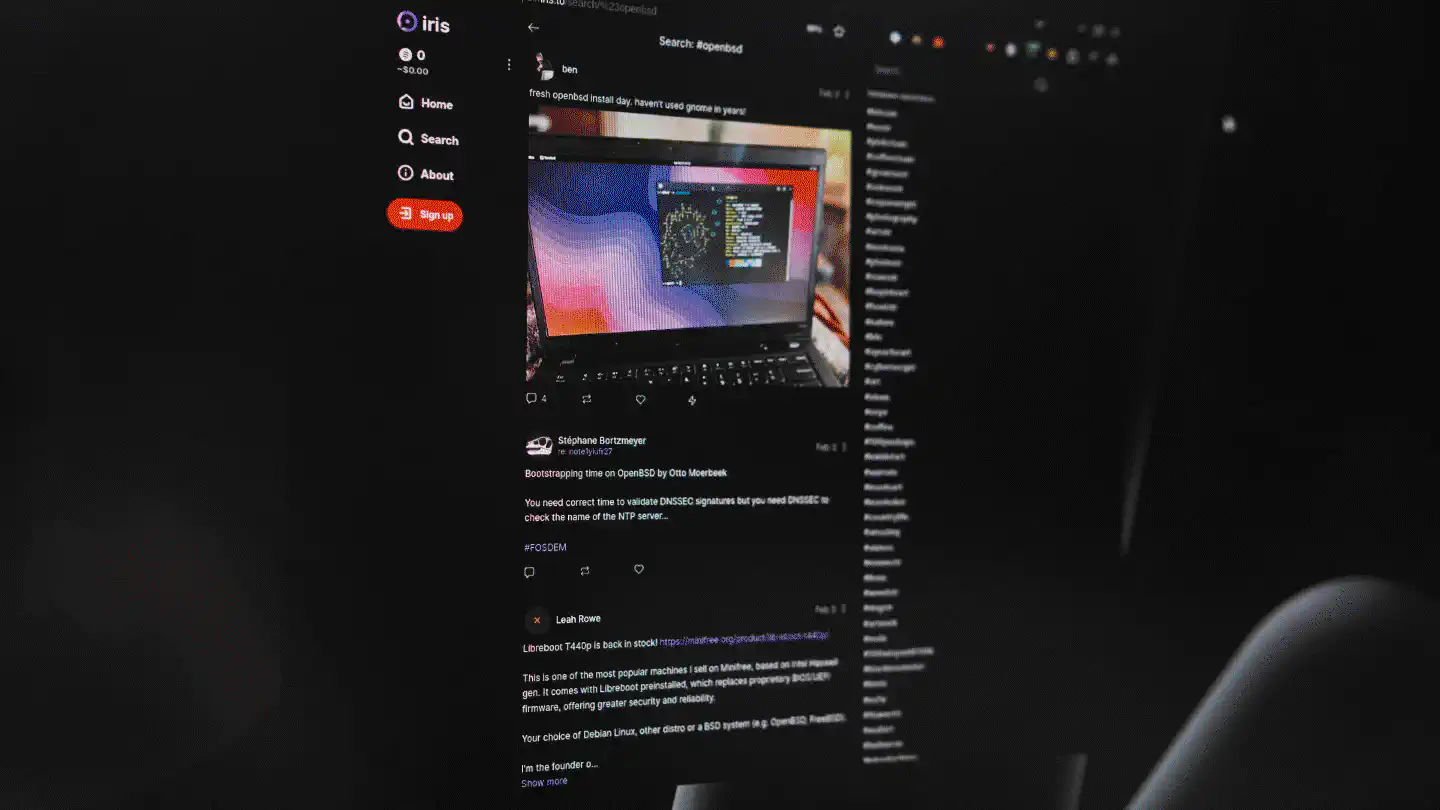- You Don’t Need A Terminal Multiplexer on Your Desktop
12 Feb '25
An opinion on the trend of content creators promoting Tmux and Zellij for
desktop environments – and why these setups may miss the point.
- Peer-to-peer Git: Radicle Seed Node on OpenBSD
17 Apr '24
While Git is decentralized by design, in many cases it still depends on a
classical server-client architecture. Many projects rely on GitHub, GitLab, or
another centralized platform to host their repositories and thereby make them
available to everyone. What if we could have Git, but without depending on
any centralized servers at all, and instead use it peer-to-peer?
- Build Your Own Decentralized Dropbox with Syncthing
7 Mar '24
In the world of file synchronization, most people are familiar with services
like Dropbox, Google Drive, or OneDrive. These centralized cloud solutions are
convenient but come with privacy concerns and potential security risks.
What if I told you that to synchronize files between individual devices, you
don’t need the cloud™ ?
- If You Must Use Signal, Use Molly
29 Feb '24
While I’m critical towards the Signal messenger, I understand that network
effects are strong and even though many people would much rather prefer a
different platform, it’s not easy to get friends and family onto something
better. In this brief write-up, I’ll introduce an alternative Signal client to
make using Signal at least slightly less troublesome.
- Run a Nostr Relay as Tor Hidden Service on OpenBSD
15 Feb '24
Let’s set up and run our own “private Twitter” on Nostr, a simple, open
protocol that enables truly censorship-resistant publishing on the web!
- Run Your Own LastPass on Hardened OpenBSD
14 Dec '22
With LastPass having suffered
yet another data
breach
–
important update
here
– it’s probably time to take matters into your own hands and run your own
cloud password manager. Let’s do exactly that, on a hardened OpenBSD system!
 An opinion on the trend of content creators promoting Tmux and Zellij for desktop environments – and why these setups may miss the point.
An opinion on the trend of content creators promoting Tmux and Zellij for desktop environments – and why these setups may miss the point. While Git is decentralized by design, in many cases it still depends on a classical server-client architecture. Many projects rely on GitHub, GitLab, or another centralized platform to host their repositories and thereby make them available to everyone. What if we could have Git, but without depending on any centralized servers at all, and instead use it peer-to-peer?
While Git is decentralized by design, in many cases it still depends on a classical server-client architecture. Many projects rely on GitHub, GitLab, or another centralized platform to host their repositories and thereby make them available to everyone. What if we could have Git, but without depending on any centralized servers at all, and instead use it peer-to-peer? In the world of file synchronization, most people are familiar with services like Dropbox, Google Drive, or OneDrive. These centralized cloud solutions are convenient but come with privacy concerns and potential security risks. What if I told you that to synchronize files between individual devices, you don’t need the cloud™ ?
In the world of file synchronization, most people are familiar with services like Dropbox, Google Drive, or OneDrive. These centralized cloud solutions are convenient but come with privacy concerns and potential security risks. What if I told you that to synchronize files between individual devices, you don’t need the cloud™ ? While I’m critical towards the Signal messenger, I understand that network effects are strong and even though many people would much rather prefer a different platform, it’s not easy to get friends and family onto something better. In this brief write-up, I’ll introduce an alternative Signal client to make using Signal at least slightly less troublesome.
While I’m critical towards the Signal messenger, I understand that network effects are strong and even though many people would much rather prefer a different platform, it’s not easy to get friends and family onto something better. In this brief write-up, I’ll introduce an alternative Signal client to make using Signal at least slightly less troublesome. Let’s set up and run our own “private Twitter” on Nostr, a simple, open protocol that enables truly censorship-resistant publishing on the web!
Let’s set up and run our own “private Twitter” on Nostr, a simple, open protocol that enables truly censorship-resistant publishing on the web! With LastPass having suffered yet another data breach – important update here – it’s probably time to take matters into your own hands and run your own cloud password manager. Let’s do exactly that, on a hardened OpenBSD system!
With LastPass having suffered yet another data breach – important update here – it’s probably time to take matters into your own hands and run your own cloud password manager. Let’s do exactly that, on a hardened OpenBSD system!